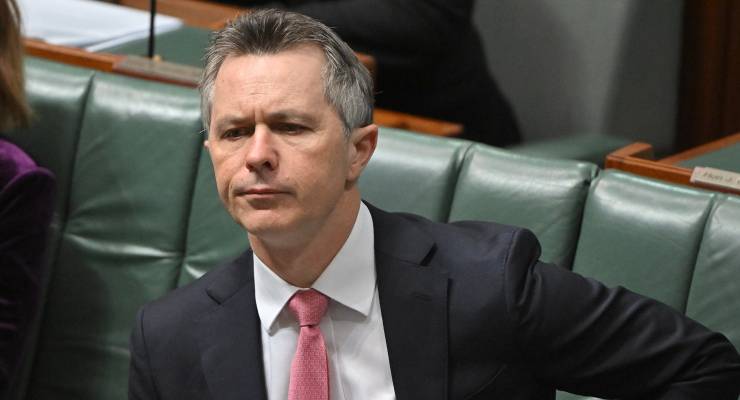
Last week the legal and constitutional affairs committee published the much-anticipated final report of its landmark inquiry into current and proposed sexual consent laws in Australia.
As I have previously written, the powerful testimony of victim-survivors of sexual violence and those who advocate on their behalf over the course of three days of public hearings in July visibly galvanised the three senators leading the inquiry — and represented a watershed moment.
On Thursday, those three senators — Liberal Senator Paul Scarr, Labor Senator Nita Green and Greens Senator Larissa Waters — demonstrated that they had heard, really heard, what victim-survivors and advocates had to say.
The report made 17 unanimous recommendations, addressing everything from how the justice system treats victim-survivors, to the consistent development of respectful relationship education across Australia, to law reform.
“I am so proud that the Senate was able to come to a consensus on these critical matters,” proclaimed Waters. “It feels like we have a moment here.”
Scarr described his work on the inquiry as “some of the most important work I will ever do”.
Both are right.
Importantly, the senators singled out the university sector, in particular its peak body Universities Australia and its regulator the Tertiary Education and Quality Standards Agency (TEQSA), for particular condemnation. To say that they were “scathing, absolutely scathing” (as Amy Remeikis did in the Guardian Australia politics liveblog) seems like a bit of an understatement.
Scarr said: “The most disturbing evidence the committee heard was in relation to the failure of the university sector to appropriately respond to the issue of sexual violence on university campuses.”
“It is a serious indictment of Australia’s university sector and the regulator, the Tertiary Education Quality and Standards Agency, that dedicated and courageous advocates for university students who have suffered from sexual violence on campus should hold the view that the process of making complaints and how universities and the regulator deal with such complaints is causing great trauma to the victims of sexual violence,” he said.
Given the evidence, Scarr added, the committee lacked confidence that the sector would respond appropriately without independent oversight and an “independent taskforce” should be established as a matter of urgency to ensure accountability.
Universities were “protecting their brand, not their students”, added Waters.
Those comments would have been incredibly validating for long-time campaigners like Sharna Bremner, the founder and director of End Rape On Campus Australia, and Camille Schloeffel, founder of The STOP Campaign, both of whom have valiantly raised the issue up the political agenda in the face of powerful institutional resistance. I have it on good authority there were a few tears.
For the inquiry to throw its full weight behind advocates’ long-time call for an independent taskforce — a taskforce that could force meaningful accountability and transparency around which institutions are providing appropriate and effective responses and prevention — represents a turning point.
I hope Education Minister Jason Clare appreciates the significance of this moment. I’m not sure he does.
Sexual violence on university campuses has been in the headlines again recently, with news the sector’s peak body, Universities Australia, axed a consent campaign funded by $1.5 million of taxpayer money due to the objections of a minority of vice-chancellors who felt it was too “risqué”.
What’s more, the sector’s regulator and a number of universities have not met commitments they made following the Australian Human Rights Commission’s landmark 2017 report “Change the Course”. A recent study by Allison Henry, a research fellow and associate at the UNSW Australian Human Rights Institute, found that while all of Universities Australia’s 39 member universities agreed to be more transparent about sexual harm on campus, three-quarters were failing to do so.
As a result, Universities Australia’s chief executive Catriona Jackson faced a barrage of questions at the Senate consent inquiry public hearing in July. And following the controversy, Clare said: “The actions universities have taken to address this to date have not been good enough.”
Yet instead of taking immediate action, Clare chose to refer the matter to a “working group” looking at university governance matters. This despite the fact that Labor promised to establish an independent taskforce ahead of the 2019 election.
Amid the furore about the axed consent campaign, it emerged that Universities Australia had not yet committed to running the Student Safety Survey again in 2024, a commitment which has since been made.
While Universities Australia was right to commit to another survey, the fact that it took its members so long to do so is telling. We often hear in feminist circles that “what gets measured gets managed”. Did the seeming reluctance to measure the problem again suggest Universities Australia members were losing interest in “managing” it?
We need more than measurement. We need action.
If you or someone you know is affected by sexual assault or violence, call 1800RESPECT on 1800 737 732 or visit 1800RESPECT.org.au. In an emergency, call 000.








“Universities Australia” is what used to be more accurately termed the Australian Vice-Chancellors’ Committee. It may well be Australia’s most useless lobby group, having consistently failed to speak for the sector as opposed to its current managerial class.
the education minister needs to seize moment on sexual assault reforms – we’re talking a LABOR minister here, right? – these time-fillers don’t “seize moments”, they close their eyes and cover their ears until the moment is long past
One significant issue with these inquiries is that in only a few cases (or possibly in no cases) the accused have been found guilty of any crime by a jury in a court which means they’re innocent.
I accept that prosecutions for sexual assault and rape are are extremely low, mainly because they’re so hard to prove, but the frustration of victims has driven them and their supporters to pursue other means including trial by media and social media, and inquiries that aren’t bound by any proper legal process.
The result has been there are very few checks and balances in place to protect the accused who are assumed guilty. Many of the #metoo cases that have proceeded to criminal trials have failed. Which means all those bogey-mostly-men were innocent under the law.
And if the law of the land is being ignored or sidestepped then that leads down a very dangerous path.
The criminal justice system for better or for worse is predicated on the notion that it’s worse if an innocent person to be found guilty than a guilty person is let free.
That’s why we have the presumption of innocence, the higher burden of proof, and why the prosecution has to do all the work including providing all of the evidence, including damaging evidence, to the accused.
That’s also why well known criminals wonder around freely. There’s even been reluctance to reverse the burden of proof for terrorists.
So what we really need to do is figure out a way of restoring faith in the criminal justice system and for courts – not HR or PR or some inquiry – to be the forum for establishing guilt or innocence.
For this to occur I think we need to do the following:
– for sexual assault or rape cases we shift the burden of proof so that the accused has to prove they had consent;
and in return for that massive encroachment on the accused’s human rights:
– the victim has to report their case within a reasonable period of time (from when they turn 18); and
– the accused may elect one or more of the following:
– to stay anonymous;
– for a judge or jury trial.
If the victim misses the deadline for reporting, the persecution can still bring a case but the burden of proof doesn’t shift to the accused.
A shortened period for reporting cases may encourage earlier reporting which will help wotu the administration of justice and possibly protect other potential victims.
The legal system needs to get a handle on this to protect everyone.
Universities are not just failing to protect their students; they are failing in their purpose altogether. The days when Australian public universities were places where critical thinking and analysis, broad education, and the dissemination and questioning of ideas both entrenched and brand new have long departed.
The commodification of Tertiary Education in Australia began decades ago and we are now reaping its poisoned harvest. Our Universities are now little more that degree factories churning out STEM and B.Com. graduates for the commodities and financial industries, without any consideration of the future needs of the country. Vice Chancellors on million-dollar-plus incomes while lecturers and tutors are subject to wage theft tells us all we need to know about the state of our University sector.
Kids are better off learning a trade; it won’t advance Australia much at all, but they will be able to make a living from it (unlike those waste-of-time teaching degrees – who needs teachers anymore?) and maybe – if the Neoliberals allow it sometime – even ….. buy a house!!!!!
Tertiary Education in Australia is a dead horse long past the point of flogging. A major upheaval is the only thing that can save it.